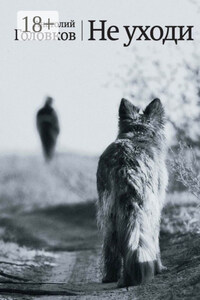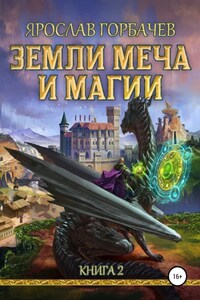In the village, rarely did anyone live past their seventh decade. Friedrich was the first person in the last half century. He was sixty-two, sitting on the porch of a barn on a clear autumn day, with a dozen and a half children crowded around him, the oldest of whom was not even twelve yet. They asked him only one question: “Why work so hard, only to throw away huge reserves of harvest that could feed the entire village for a month?”
Looking at the curious eyes of the children, Friedrich began:
– I will tell you, but I hope you will know about it only from my lips and you will never have to observe anything like it. I was thirteen then. I heard this legend… Or rather, it seemed to me that it was a legend, because it was talked about all the time, and adults mentioned it with serious faces, but nothing like that ever happened. My peers and I have never seen any evidence that Nix exists.
– Nix? – repeated nine-year-old Penelope questioningly.
– Yes, darling. That is the name of the evil spirit. He has power over the frost element, and the souls of the dead obey him. He appears every year on the first full moon after the first snow. As soon as the first snow falls, the whole village collects a hundred bags of ripe fruit, loads them into carts and takes them on a cold, frosty night into the forest, as far as possible, so as not to let Nix get close to the village. This is how the evil spirit receives a gift, in return for which it does not bother the residents of our village.
– What if he doesn’t receive the gift? – Penelope continued to inquire.
After these words, tears welled up in Friedrich’s eyes, as he recalled the events he had witnessed in his youth. He tried to find the strength to continue the story, when a tear rolled down his left cheek.
Summer was always short in these parts, and while the warm days lasted, they hurried to lie down among the tall grass near the river bank in the sun, where no one would disturb them. Erikson was twenty years old, and he had already decided on his plans for life. The following spring, he and Penelope decided to get married. In the meantime, he could not take his eyes off those blue eyes, her straight chestnut hair and her plump lips. Erikson often called her a squirrel because in the local forest there were squirrels the same color as Penelope’s hair, and besides her, in the entire settlement only her mother and sister had the same hair. She was a year younger, but slightly taller than Erikson.
He pressed his lips to hers again and kissed her, feeling the sun warm the skin of Penelope’s face. She reached out to repeat the kiss, then rolled over onto her side and, propping her head up with her hand, said:
– Maybe tomorrow we can go to the lake?
Erikson sighed with annoyance and replied:
– No, Squirrel. I’m afraid we can’t. Tomorrow is our turn.
Penelope was not upset at all.
– Well, no big deal. My father said that he was going to work for several days in a row. Tomorrow I’ll go with him. – Then Penelope came close to Erikson’s face and almost whispered: – So you won’t get away from me anyway.
Erikson abruptly pressed his lips to the girl’s neck and, imitating an animal bite, laid her on her back. Penelope screamed, overcoming her laughter, and Erikson, jokingly pressing his teeth to Squirrel’s neck, once again felt how the girl’s skin warmed up under the sun’s rays. He continued to hold Penelope’s wrists clasped so that she would not resist, and continued to bite his lips into her neck as low as her dress allowed. Squirrel shook her head, pressed her chin to her chest, but it was all useless. Erikson found bare spots where he pressed his lips lightly, then let Penelope feel the edges of his teeth. As soon as he left her neck alone, Penelope suddenly stopped screaming. Now muffled laughter came from her lips, which was replaced by a joyful smile. The sunbeams that fell directly on her eyes prevented her from properly examining Erikson’s face. He couldn’t get enough of her bulging lips for a few more moments, then pressed them and began to slide along them.
Meanwhile, Andreas, Erikson’s father, had finished carving a wooden boat for his youngest son. They were walking along the bank near the field where the boy had launched the boat. The water level in the river had dropped noticeably over the summer, the current had become weak, and the boat was not moving as fast as seven-year-old Willie had wanted. Noticing the boat’s sluggish movement, he looked at his father and said:
– I wish winter would come soon.
Willie’s favorite pastime was sledding. In the spring, when one of the boards on the old sled cracked, Andreas promised Willie he would make new ones before autumn. But after it became clear that the drought would require working in the fields twice as much as usual, there was very little time left for other things. However, Andreas was determined to keep his promise, because this was the only way he could persuade the youngest of his three sons to be patient until winter came, when the first snow would fall and cover the hill, which would be ready for the children from all over the village to rush down.












